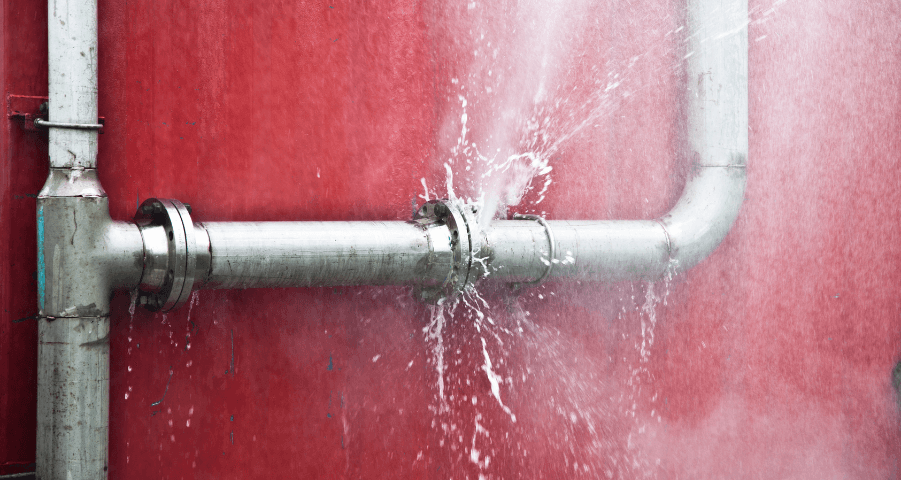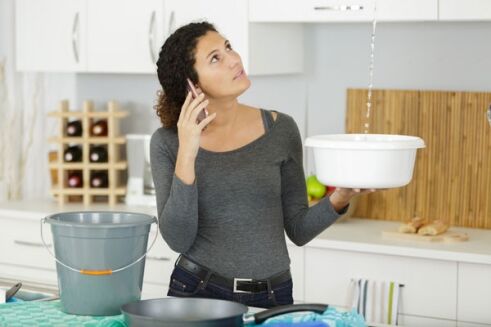Temporary Tips for Critical Situations: Steps to Follow Until Help Arrives
Temporary Tips for Critical Situations: Steps to Follow Until Help Arrives
Blog Article
We've encountered this post about Plumbing Emergencies: Tips on What To Do Before down the page on the internet and concluded it made perfect sense to share it with you on my blog.

Pipes emergency situations can strike at any time, triggering stress and anxiety and prospective damages to your home. Whether it's a burst pipe, a clogged drain, or a dripping tap, understanding how to take care of the scenario up until a specialist plumbing technician shows up can conserve you from more issues. This post offers important emergency plumbing tips to aid you alleviate damage and regain control throughout a pipes crisis.
Turn Off the Water
The primary step in any type of plumbing emergency situation is to turn off the water system. For localized concerns, such as a dripping faucet or commode, shut off the valve near the component. When it comes to a major leakage or burst pipe, situate your home's main water shut-off shutoff and transform it off instantly. Recognizing the place of these shutoffs in advance can save beneficial time during an emergency.
Address Little Leaks with Short-lived Repairs
Tiny leaks can quickly come to be significant troubles if left unattended. Make use of these short-term solutions until specialist assistance gets here:
While these repairs aren't irreversible, they can assist decrease water loss and damage.
Unclog Drains Securely
A clogged up drainpipe can be a frustrating and untidy concern. Below's how to tackle it:
If these approaches do not work, avoid utilizing too much pressure, as it may intensify the obstruction.
Take Care Of Overflowing Toilets
An overruning commode can cause immediate mayhem. Below's what you need to do:
Turn off Your Water Heater
In specific emergencies, such as a ruptured pipeline, it's important to shut off your hot water heater. This prevents overheating or damages to the device when water quits moving. Switch off the power supply to the hot water heater (electrical or gas) and allow it cool off to stay clear of potential hazards.
Temporarily Quit a Ruptured Pipeline
A ruptured pipeline can cause considerable water damage in mins. To alleviate the problem:
Call a specialist plumbing technician promptly to resolve the issue permanently.
Take Care Of Frozen Water Lines Carefully
In chillier environments, icy pipes are an usual emergency. If you believe an icy pipe:
Avoid More Damage
Taking quick activity to minimize damages can conserve you time and money over time. Here's exactly how:
. Have an Emergency Situation Plumbing Package
Prepare a basic pipes emergency situation kit to manage minor problems effectively. Your kit must include:
Having these tools on hand can make a considerable difference in your ability to handle emergency situations.
Know When to Call a Specialist.
While quick fixes can help temporarily, specific plumbing problems call for prompt professional attention. Call a plumbing technician if:.
Promptly getting in touch with a specialist makes certain the issue is fixed appropriately and protects against more difficulties.
Conclusion.
Plumbing emergencies can be overwhelming, however with the ideal expertise and tools, you can handle the circumstance successfully till aid arrives. By turning off the supply of water, dealing with little leaks, and using short-term fixes, you can reduce damage and maintain your home safe. Keep in mind, these ideas are short-lived services; always speak with a certified plumbing to deal with the source of the issue. Preparation and quick thinking are your finest allies in any type of pipes emergency situation.
How to Manage a Plumbing Emergency Until Help Arrives
Plumbing emergencies can be stressful, but keeping calm can help minimize damage to your home. Below are steps to handle a plumbing emergency, but always call a plumber for assistance. It’s safest to have a 24/7 emergency plumbing team readily available, so keep their number in your contacts list for easy access.
Shut off the water: Act quickly to turn off the water source during an emergency. For toilets, turn the water valve at the base or behind the commode. For larger emergencies or flooding, turn the main valve in your home clockwise. Turn off the water heater: Prevent damage to your water heater by switching it off after shutting off the main valve. If you have a gas water heater, turn off the gas supply first. Must Open drains and spigots: Even after shutting off the main valve, your pipes may still have water. Reduce potential damage by turning on spigots outside your home and clearing water with the garden hose. Avoid using chemical cleaners during an emergency. Address small leaks: If you find a small leak, use the plumber’s tape or place rags and towels around the pipes to prevent further damage. Inform the plumbers about these leaks upon their arrival. Call for help: Remember to call a plumber as soon as the emergency occurs. An early call can provide initial assistance and help determine if the situation is too dangerous. If professionals or government officials advise you to leave your home during an emergency, listen and prioritize your safety. Plumbing Emergency Examples and Immediate Fixes
Dealing with a plumbing emergency can put enormous stress on homeowners, leaving them uncertain about the steps to take. This detailed guide delivers concise, direct advice for swiftly tackling typical plumbing dilemmas. It includes actionable measures for dealing with everything from burst pipes to toilets that won’t overflow, helping reduce harm and quickly bring back normalcy.
Burst Pipes
Burst pipes result from intense pressure from various causes like freezing temperatures, corrosion, or physical damage that leads to a pipe rupturing.
Solutions:
Immediately shut off the main water supply to halt the flow of water. Drain the remaining water in the system by opening all cold water taps to prevent further damage. For a temporary fix, use a pipe repair clamp or wrap a piece of rubber around the burst section and clamp it tightly with hose clamps. Call a plumber for a permanent fix. Severe Leaks in Faucets or Toilets
Solutions
Locate and close the local shut-off valve to stop the water flow to the leaking fixture. Place a bucket underneath to catch any drips and reduce damage. In the case of a toilet, lift the float in the tank to prevent more water from entering the bowl and turn off the water supply valve. Contact a plumber to address the problem correctly. Leaking Water Heater
Turn off the water supply to the leaking water heater. If it’s electric, switch off the power at the circuit breaker; if it’s gas-powered, turn off the gas valve. Avoid attempting to repair yourself, as this may involve significant danger and complexity. Seek the assistance of a professional plumber who can provide a safe and appropriate resolution. https://www.showtimeplumbingllc.co/expert-tips-for-managing-a-plumbing-emergency-until-help-arrives

I'm certainly very fascinated with What to Do While Waiting for an Emergency Plumber and I really hope you enjoyed the post. Those who enjoyed our post if you please don't forget to pass it around. Thank you for taking the time to read it.
Get Quote Now Report this page